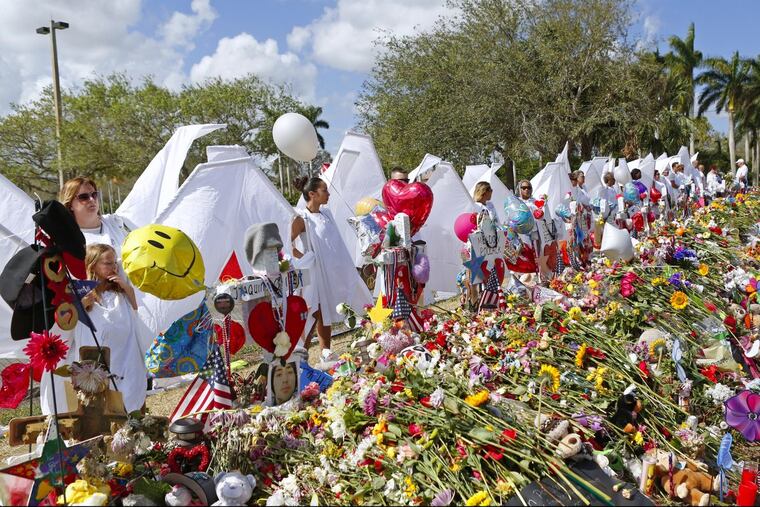So much security in Washington. Why not in schools? | Opinion
You cannot walk into the Department of Education without going through security. Why shouldn't we protect our kids the same way we protect our politicians and bureaucrats?

The horrific shooting at Marjory Stoneman Douglas has sparked a national conversation about how to keep our kids and schools safe. The outpouring of grief and loss from Florida strikes deep into every American heart. I think of my four daughters, two of whom are teachers, and my eight grandchildren. I worry about their safety. No parent should fear for their child, and no child should be afraid to go to school.
While we debate what new laws may have prevented this tragedy, and as we examine what existing protocols were failed to be enforced, we can all agree that we must do more to protect our kids.
That is why I recently called on the Trump Administration to incorporate schools as "critical infrastructure" under the guidance of the Department of Homeland Security.
There are currently 16 categories of critical infrastructure, such as the energy sector and financial services sector, whose assets, systems, and networks are considered so vital to the United States that their incapacitation or destruction would devastate our national security, economic well-being, and public health or safety. The federal government works with state and local partners, as well as private entities, to ensure the security and resilience of critical infrastructure sectors. But schools are not currently designated.
Our kids are our greatest assets. It is embarrassing for me when I see the security provided to me in Washington, knowing parents across the country are dropping their children off at school in fear. You cannot walk into the Department of Education without going through security. Why shouldn't we protect our kids the same way we protect our politicians and bureaucrats?
Designating schools as critical infrastructure would allow for the Secretary of Homeland Security to lead the way in bringing together local leaders, law enforcement, private organizations, and federal entities to provide support for schools in determining the best strategy to protect schools.
This designation would pool America's expert capabilities to help local communities protect our children. Local school administrators and law enforcement would be provided resource support and flexibility to adopt the policies best suited for their schools. Options for hardened security choices, both infrastructure and armed security, whatever form that may take, would be presented for local school administrators, law enforcement, and parents to determine what they see as the most effective way to protect their children.
Federal grants for school security must also be on the table. This week, Congress plans to also take up the STOP School Violence Act, authorizing funds for threat assessments and training to help students, teachers, school officials, and local law enforcement detect early warning signs of violence. As a cosponsor of that legislation, I am encouraged that the House is poised to act quickly to secure our schools.
I have also urged the House Appropriations Committee fund the Secure Our Schools grant program with $150 million in the upcoming government funding bill. Led by a critical infrastructure designation, a comprehensive federal response will promote the best strategies to help protect kids at school, while distributing federal resources for security measures.
Grieving families are searching for answers. Americans are mobilized. Elected officials have a duty to lead the way to solutions for these problems. This solution requires pragmatism, not idealism.
We are going to continue to debate how best to stop gun violence in America. But the best way to protect our kids is to not allow killers into schools, no matter what kind of weapon they have. America must develop a plan so that our schools are the safest in the world. Designating schools as critical infrastructure is a first step in the right direction.
Rep. Lou Barletta has served as the U.S. Representative for Pennsylvania's 11th congressional district since 2011.